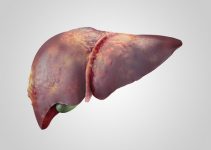Excessive burping refers to severe, bothersome burping that is said to affect around 7 percent people on a regular basis. Read and know more about the causes, symptoms, diagnosis and treatment of this disorder.
Excessive Burping Definition
Page Contents
Gas, produced in the body, is dispelled in two ways – either through the mouth or the anus. Burping is the act of releasing gas through the mouth. It may be involuntary or voluntary. The gas arises from the digestive tract, particularly the esophagus and stomach, and is released through the mouth. Burping releases excessive air from the stomach which is often swallowed along with food and other fluids. It is medically termed as “Eructation”. Belching is another popular term that is often used as a substitute for “Burping”. Excessive burping is the release of excessive amounts of gas through the mouth.
Excessive Burping Symptoms
Picture 1 – Excessive Burping
Excessive belching is often found to be associated with various other symptoms, such as:
Abdominal swelling
Distension of the stomach due to the presence of excess gas causes bloating which can range from mild to extreme abdominal enlargement. It can last for a few days or may occur over a longer period of time.
Change in bowel habits
The frequency of bowel movements may either increase or decrease than usual. The consistency as well as the appearance of the stool may also change. Often, during bowel movement, severe abdominal pain may also occur.
Constipation
In this case, the bowel movement in this situation is less than three times in a week. The stools that are passed are usually hard, dry, small in size, and very difficult to eliminate.
Diarrhea
Patients often pass loose and watery stools that occur on a regular basis. Unlike constipation, here patients have three or more loose or liquid bowel movements per day that could lead to dehydration and electrolyte imbalance.
Flatulence
It is a state of having excessive stomach or intestinal gas and can cause expulsion through the rectum in form of a mixture of gases. These are normally the byproducts of the digestion process taking place inside the body.
Nausea
Patients often have a sensation of unease and discomfort in the upper stomach with an involuntary urge to vomit.
Chest and back pain
Patients generally experience pain in the chest and back, while passing gas through belching.
Excessive Burping Causes
Excess belching can occur due to a variety of conditions, such as:
Dyspepsia
It is a condition of impaired digestion. It is characterized by recurrent pain in the upper abdomen, abdominal fullness, nausea or burning sensation. The acid reflux causes heartburn in the esophageal lining. People tend to swallow the acid quite often in order to relieve the burning sensation and eventually burp. Due to constant swallowing, more air enters the body and enhances the problem.
Aerophagia
It is a condition where a person swallows too much air, which goes into the stomach and leads to intermittent burping. It predominantly affects those people who have the habit of chewing gum, smoking or drinking aerated drinks such as soda and beer. This ultimately leads to excess consumption of air and causes burping along with abdominal pain.
Allergic reaction in food
Frequent belching may also occur due to certain allergic reactants present in some food items which produce a lot of gas inside the stomach. Many people are found to be extremely sensitive to certain foods which may lead to excessive burping.
Wrong Eating Habits
Overeating or eating at inappropriate timings also causes this problem. People who take their meals at unusual hours of the day generally complain of fullness and major discomfort.
Pregnancy
During pregnancy, there is a rise in progesterone levels in the body. This is mainly responsible for relaxation of muscles of the uterus and prevents it from making spontaneous movements. However, it may have a negative impact on the functioning of the digestive system and lead to severe burping. During the later stages of pregnancy the grown uterus occupies some space in the abdominal cavity which retards the digestion process. This could also be a reason behind frequent burping.
Gastroparesis
Sometimes, the stomach undergoes paralysis due to damage of the muscles and nerves. Due to this reason, the food remains inside the stomach for a longer duration in an undigested form. It leads to extreme discomfort and continuous belching.
Irritable bowel syndrome
Constant belching may also arise due to this syndrome which is characterized by acute abdominal pain, uneasiness, burping and changes in bowel habits.
Gallbladder disorder
The gallbladder is a sac located under the liver and aids in storage of bile produced by the liver. Bile helps in the digestion of fats and is released into the duodenum of the small intestine in response to the food eaten. Any form of disease of the gallbladder may lead to a host of symptoms like vomiting, nausea, heartburn and burping.
Hiatus Hernia
It is the protrusion of a portion of the stomach into the thoracic (chest) cavity due to weakening or rupture of the diaphragm. The protrusion and compression of the stomach causes a range of gastrointestinal symptoms including belching.
Medication and Nutritional supplements
Formation of excessive gas inside the stomach may also occur due to the use of various prescription and non-prescription medications, such as antacids, aspirin and narcotic pain drugs. Dietary supplements like Citrucel, Fiberall, Metamucil, multivitamins and iron pills may also be responsible for causing gas. Excess gas in stomach is a major cause of continuous burping.
Excessive Burping Diagnosis
There are certain diagnostic techniques which can help physicians evaluate the disorder. These include:
Picture 2 – Excessive Burping Image
Abdominal X-rays
Simple X-rays of the abdomen, if taken in the state of distension may confirm air as the cause behind the bloating of the stomach. Overabundance of air can be seen within the stomach and intestine in the X-ray images.
Small intestinal X-rays
Real-time moving images of the small intestine can be obtained through the use of a fluoroscope. It basically consists of an X-ray source and a fluorescent screen between which patients are placed. This particular test utilizes barium or an iodine-containing agent that allows visualization of the entire digestive tract. This imaging technique can easily show whether there is an obstruction in the small intestine.
Gastric emptying study
This diagnostic procedure helps analyze the ability of the stomach to empty its contents. Patients are made to eat a test meal that is labeled with a radioactive material and a Geiger counter-like device is then placed on the abdomen. This device is a particle detector which detects the emission of nuclear radiation like alpha particles, beta particles or gamma rays. The rapidity with which the test meal is emptied from the stomach can be measured using this device. If any delay occurs in emptying the radioactive contents there could be a possibility of some disorder of the stomach.
Imaging techniques
Ultrasound examination, computerized tomography (CT) and magnetic resonance imaging (MRI) are also used often. These are quite useful in detecting the cause of distension which may occur due to enlargement of the abdominal organs, abdominal fluid or tumor.
Hydrogen/methane breath tests
The test is simple, non-invasive and is usually performed after a short period of fasting of 8-12 hours. It is one of the most convenient methods to test for bacterial overgrowth. The gas normally produced by the bacteria of the colon is composed of hydrogen and sometimes, methane. Patients are asked to consume a non-digestible sugar like lactulose and samples of their breath are then taken at regular intervals for analysis. When the lactulose reaches the colon, the bacteria form hydrogen and/or methane. Some of it is absorbed into the blood and eliminated in the breath.
An overgrowth of bacteria usually produces higher levels of hydrogen and methane. This indicates that there is a problem with the digestion or absorption of food in the small intestine that allows more unabsorbed food to reach the colon.
Excessive Burping in children
This particular disorder in small children often occur if they talk a lot or keep their mouth open while eating. It is normal for babies to burp because swallowing some air while drinking or eating is unavoidable. Hence, it is advisable that they burp within 20 minutes after a breast or bottle feed. Constant belching may also occur due to Gastroparesis. Around 60% of children suffering from Gastroparesis are prone to this problem.
Excessive Burping heart attack
Patients often dismiss serious symptoms, such as symptoms of a heart attack, as indigestion. Elevated heart rate and episodes of burping may have a minor association.
The chances of developing burping and heart attack can also be related to smoking. Stress and anxiety can also increase the chances of developing burping as well as increase the heart rate for a short-term.
Excessive Burping Treatment
Some of the treatments include:
Change in diet
Incomplete digestion of specific sugars (such as lactose, sorbitol, or fructose) may often cause distension of the stomach. Such types of sugars should be completely eliminated from the diet of patients. In order to avoid consumption of lactose present in milk, enzymes similar to intestinal lactase are added. This breaks down the lactose prior to its ingestion, so that it can be absorbed normally.
There are certain types of vegetables and fruits, containing starches that are poorly digested by people but easily digested by bacteria. These comprise mainly of beans, lentils, cabbage, brussel sprouts, onions, carrot and apricots. Intake of these items should be reduced to a greater extent in order to avoid accumulation of gas and flatunence.
Treatment of maldigestion/malabsorption disorders
Disorders of the intestinal lining, like Coeliac disease that is caused due to maldigestion or malabsorption, can be identified through a small bowel biopsy. Gluten-free diet is one type of treatment where wheat, rye, and barley are strictly avoided.
Alpha-D-galactosidase
It is an enzyme that is produced by a mold and is commercially available as Beano. It is usually consumed as either a liquid or tablet with meals. This enzyme helps in breaking down and absorbing the polysaccharides present in vegetables which are difficult to digest. This prevents them from reaching the colon and causing unnecessary production of intestinal gas.
Activated charcoal
Activated charcoal tablets such as CharcoCaps are available in natural food stores and may help reduce gas and belching if taken before or after a meal.
Surgery
In some cases, there can be a physical obstruction to the emptying of the stomach or passage of food, liquid, and gas through the small intestine. In such cases, surgical correction of the obstruction is required to restore the normal absorption process of the intestine.
Antibiotics
Bacterial overgrowth in the small intestine is usually treated with antibiotics. Prolonged use of the same can also affect bowel movements and suitable probiotics may be necessary. These live microorganisms can be consumed as dietary supplements or as part of fermented foods like yogurt or soy yogurt.
Incliner Sleep Wedge
It is an innovative sleep solution. It was scientifically designed to help acid reflux sufferers. It relieves acid reflux by elevating the head, shoulders and upper body as recommended by physicians. It helps patients to sleep in a natural position for controlling heartburn and digestion ailments which are directly responsible for severe belching.
In most cases, excessive burping is not a sign of a more serious health issue. If other issues such as abdominal pain accompany burping, patients must visit a doctor for a thorough examination. Assessment of eating habits and overall health can help in determining the cause of frequent burping.




GOOD TREATMENT .
THANKS
GOOD TREATMENT . THE BURPING I HAD WAS A RESULT OF HAVING SENSATION OF UNEASE AND DISCOMFORT IN THE UPPER STOMACH WITH AN INVOLUNTARY URGE TO VOMIT. BUT AFTER VOMITING BURPING LEFT AND I AM NOW FREE .
THANKS